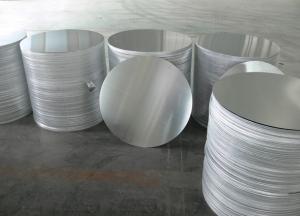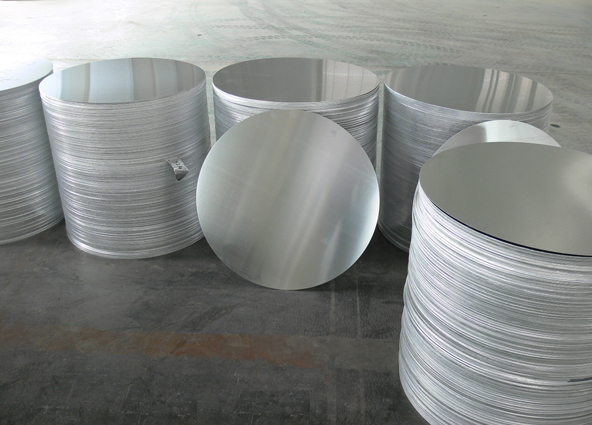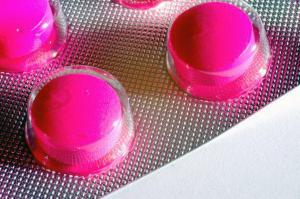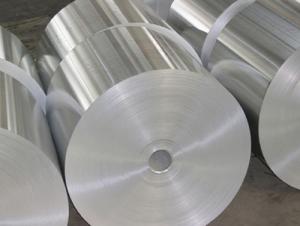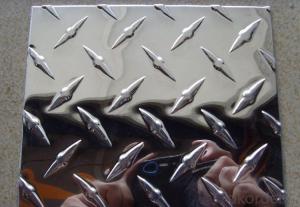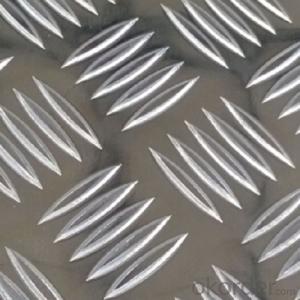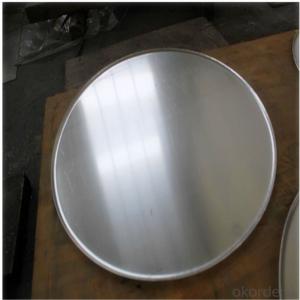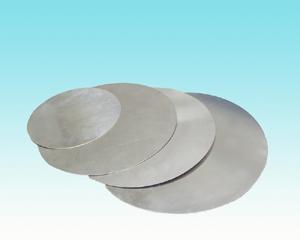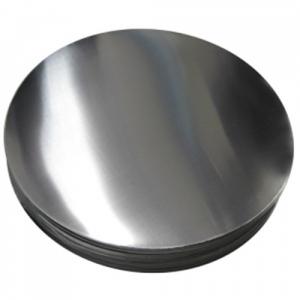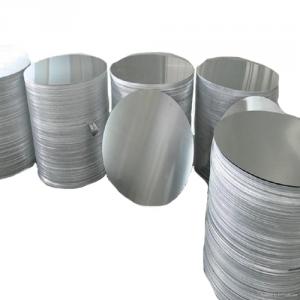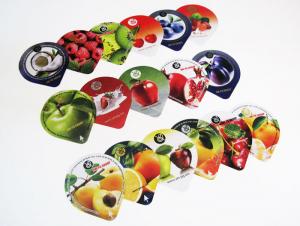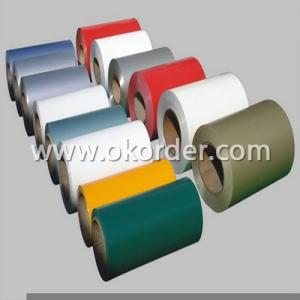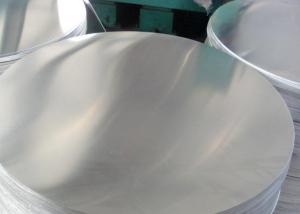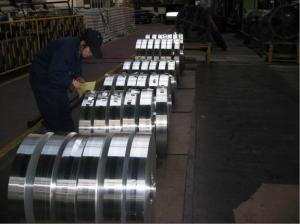Aluminium Circle in grade A3XXX Hot Rolled DC
- Loading Port:
- Shanghai
- Payment Terms:
- TT or LC
- Min Order Qty:
- 3 m.t.
- Supply Capability:
- 1000 m.t./month
OKorder Service Pledge
OKorder Financial Service
You Might Also Like
1.Structure of Aluminum Cirlces D.C Quality 3xxx Description:
Aluminum circles D.C quality 3xxx is made from aluminum coils 3xxx. Aluminum circles D.C quality 3xxx has great ductility, heat conductivity, anti-corrosion and moisture resistance properties.
Aluminum circles D.C quality 3xxx are widely used for kitchen wares including fried pans, non-sticky pans, cooking pots,hard anodized cookware, pressure cooker and house hold utensils.
2. Aluminum Cirlces D.C Quality 3xxx Quality Specification:
A3XXX Hot Rolled DC Aluminium Circle
1) alloy number 3003 3004 3005
2) temper available O H12 H14 H16 H18.
3) application: cookware utensil and basin.
4) thickness: 0.5-4.0mm.(+/-0.02mm)
5) diameter: 100-1200mm.(+/-0.5mm)
6) production treatment: cold rolled
7) surface appearance: flat clean surface no scratch, oil dirty and oxidation.
8) cutting edge: neat cutting edge no burrs.
3.Aluminum Circles D.C Quality 3XXX Images
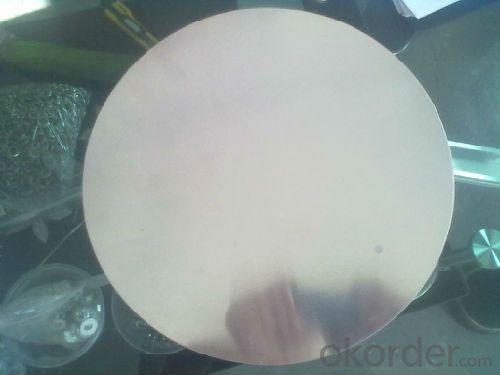
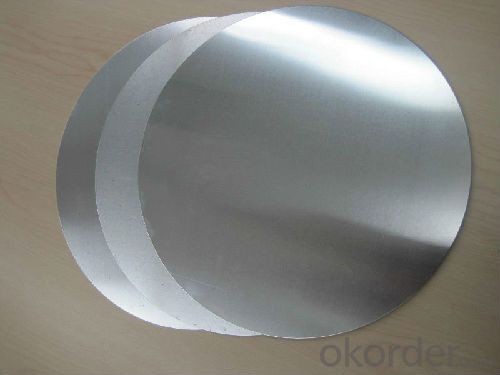
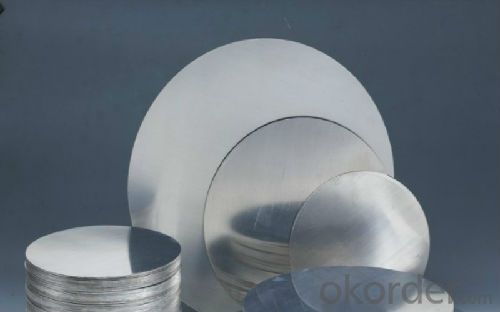
4. FAQ of D.C Quality 3xxx Specification:
A.How to guarantee the quality?
Customers are welcome to our mill to visit and check the products. Besides, we can arrange a third party to test the quality.
B.When will you deliver the products?
The goods will be delivered within 35 days after receiving advanced payment or original L/C.
- Q: This question asks about the interaction between aluminum and electromagnetic radiation, specifically how aluminum influences or is affected by such radiation.
- <p>Aluminum has a high electrical conductivity and is a good reflector of electromagnetic radiation. It reflects a wide range of frequencies, including visible light, ultraviolet, and infrared radiation. Due to its reflective properties, aluminum is used in applications such as reflective coatings for insulation and mirrors. It also has the ability to shield against electromagnetic radiation, making it a common material in the construction of Faraday cages, which are used to block external electromagnetic fields. Aluminum's effect on electromagnetic radiation is primarily through reflection and shielding, rather than absorption or transmission.</p>
- Q: What are the distinctions between aluminum foil and aluminum sheet in terms of thickness, usage, and properties?
- <p>Aluminum foil and aluminum sheet are both made from aluminum but differ in thickness and usage. Aluminum foil is very thin, typically ranging from 0.0005 to 0.1 inches, and is used for food packaging, cooking, and insulation. It is lightweight, flexible, and has excellent barrier properties against light, air, and moisture. Aluminum sheet, on the other hand, is thicker, usually from 0.2 to 2 inches, and is used in construction, automotive, and aerospace industries due to its strength and durability. It is less flexible than foil but offers greater rigidity and can withstand higher temperatures and pressures.</p>
- Q: Is it possible to use pure aluminum to create tools and equipment with increased longevity?
- <p>Pure aluminum is not typically used for making tools and equipment that require durability and strength. While it is lightweight and corrosion-resistant, pure aluminum is relatively soft and lacks the strength needed for most tools and equipment. Alloys of aluminum, which combine aluminum with other elements like copper, magnesium, or silicon, are often used instead. These alloys offer improved strength, hardness, and wear resistance, making them more suitable for long-lasting tools and equipment.</p>
- Q: Is it possible to utilize aluminum in the creation of innovative battery technologies?
- <p>Yes, aluminum can be used to make new types of batteries. Aluminum-air batteries, for instance, are a type of metal-air battery that uses aluminum as the anode and air as the cathode. These batteries have a high energy density and are lightweight, making them suitable for certain applications like electric vehicles and backup power systems. Research is ongoing to improve the efficiency and lifespan of aluminum-based batteries, addressing issues such as aluminum corrosion and the development of efficient air cathodes.</p>
- Q: Describe the characteristics and properties of aluminum oxide.
- <p>Aluminum oxide, also known as alumina, is a compound of aluminum and oxygen with the chemical formula Al2O3. It is a white solid that is insoluble in water but soluble in acid and base. It has a high melting point (over 2000掳C), high hardness, and is chemically inert. Aluminum oxide is also a good electrical insulator and has a high refractive index. It is used in various applications, including abrasives, refractory materials, and as a catalyst in chemical processes. Additionally, it is biocompatible and is used in medical implants and dental materials.</p>
- Q: Does aluminum have the ability to corrode or deteriorate over time?
- <p>Yes, aluminum can corrode, but it typically forms a protective oxide layer on its surface when exposed to air, which prevents further corrosion. This layer of aluminum oxide is very thin but strong and stable, making aluminum highly resistant to corrosion. However, under certain conditions such as exposure to certain chemicals or in the absence of oxygen, aluminum can still corrode. Corrosion can also occur if the protective layer is damaged or compromised.</p>
- Q: This question asks about the process of manufacturing aluminum foil.
- <p>Aluminum foil is made through a process that begins with the extraction of aluminum from its ore, bauxite. The bauxite is first refined to produce aluminum oxide, which is then reduced to aluminum metal using the Hall-H茅roult process. The aluminum is then melted and cast into large ingots. These ingots are heated and rolled into thin sheets in a series of passes through large rolling mills. As the metal cools, it hardens, and the thickness of the sheet is progressively reduced. The final thin sheets are then cut and packaged as aluminum foil. This process requires precision and control to achieve the desired thickness and quality of the foil.</p>
- Q: Explain the question in English and provide a brief description of how to lessen the use of aluminum in food packaging.
- <p>To reduce the amount of aluminum in food packaging materials, consider using alternative packaging options such as biodegradable materials like paper, cardboard, or plant-based materials. Encourage the use of glass containers, which are reusable and have a lower environmental impact. Advocate for the development and use of aluminum-free coatings and films. Promote recycling programs specifically for aluminum to ensure it is properly collected and repurposed. Additionally, educate consumers on the importance of reducing aluminum use and the benefits of alternative packaging options.</p>
- Q: This question asks about the impact of heat on the characteristics of aluminum, including its physical and chemical properties.
- <p>Heat significantly affects the properties of aluminum. As temperature increases, aluminum's electrical and thermal conductivity decrease, although it remains a good conductor. Its strength and hardness also decrease with rising temperature, which can lead to reduced structural integrity in high-temperature applications. Thermal expansion occurs, causing the metal to lengthen and potentially deform. Aluminum's malleability and ductility increase with heat, making it easier to shape and form. However, prolonged exposure to high temperatures can cause oxidation and corrosion. The specific heat treatment, such as annealing or quenching, can also alter aluminum's microstructure, impacting its mechanical properties.</p>
- Q: What are the various electronic components that utilize aluminum as a primary material?
- <p>Aluminum is used in several types of electronic components due to its good thermal conductivity, lightweight, and corrosion resistance. Some of the common components include: 1. Capacitors: Aluminum electrolytic capacitors are widely used for their high capacitance and low cost. 2. Heat sinks: Aluminum is a popular choice for heat sinks due to its ability to dissipate heat efficiently. 3. Semiconductors: Aluminum is used in semiconductor manufacturing, particularly for interconnects and as a barrier layer. 4. Conductive adhesives: Aluminum-filled adhesives are used for bonding components in electronics. 5. Wires and cables: Aluminum wire is used in some applications due to its lower weight compared to copper. 6. Reflectors: Aluminum is used in light reflectors for its reflective properties. 7. Housings and enclosures: Aluminum is used in the construction of electronic device casings for its strength and lightweight properties.</p>
Send your message to us
Aluminium Circle in grade A3XXX Hot Rolled DC
- Loading Port:
- Shanghai
- Payment Terms:
- TT or LC
- Min Order Qty:
- 3 m.t.
- Supply Capability:
- 1000 m.t./month
OKorder Service Pledge
OKorder Financial Service
Similar products
Hot products
Hot Searches
